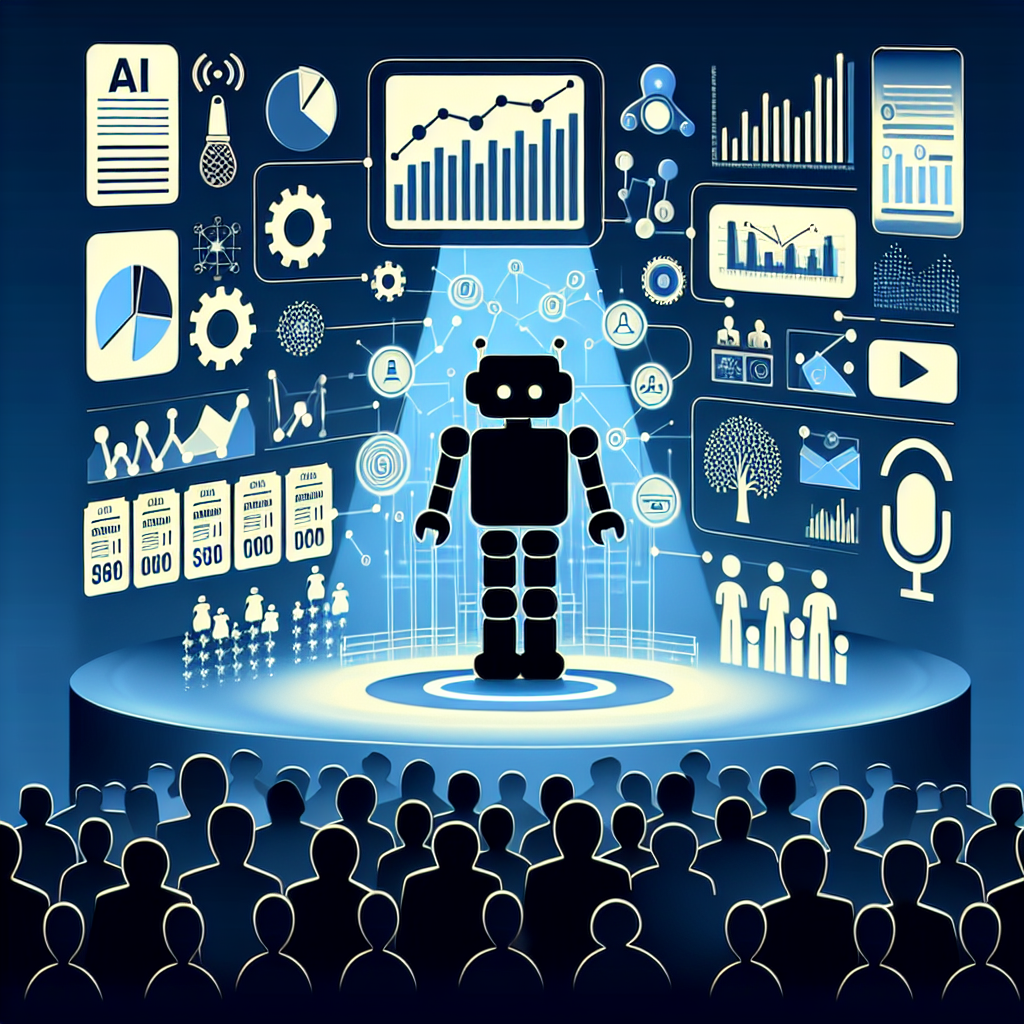In recent years, the use of artificial intelligence (AI) in business intelligence has become increasingly prevalent across various industries. One area where AI-driven business intelligence is making a significant impact is in event management. By leveraging AI technology, event planners and organizers can gain valuable insights, streamline processes, and enhance the overall attendee experience.
AI-driven business intelligence for event management involves the use of machine learning algorithms and predictive analytics to analyze data and make informed decisions. This technology can help event organizers in various aspects of event planning and execution, including marketing, logistics, attendee engagement, and post-event analysis. Here are some key ways AI-driven business intelligence is revolutionizing event management:
1. Data Analysis and Insights: One of the primary benefits of AI-driven business intelligence in event management is the ability to analyze vast amounts of data quickly and efficiently. By tracking metrics such as attendee demographics, engagement levels, and feedback, event organizers can gain valuable insights into attendee preferences and behavior. This information can be used to tailor marketing strategies, optimize event logistics, and improve overall event planning processes.
2. Predictive Analytics: AI technology can also be used to predict attendee behavior and preferences, allowing event organizers to anticipate trends and make data-driven decisions. For example, predictive analytics can help organizers identify which sessions or activities are likely to be the most popular among attendees, enabling them to allocate resources more effectively and enhance the overall attendee experience.
3. Personalization: AI-driven business intelligence enables event organizers to personalize the attendee experience by delivering targeted content and recommendations based on individual preferences. By analyzing data such as past event interactions, social media activity, and survey responses, organizers can create personalized agendas, recommendations, and promotions for attendees, leading to increased engagement and satisfaction.
4. Real-time Monitoring: AI technology can provide event organizers with real-time monitoring capabilities, allowing them to track key performance indicators and make immediate adjustments as needed. For example, AI algorithms can analyze social media mentions, attendee feedback, and other real-time data sources to identify potential issues or opportunities during an event, enabling organizers to respond quickly and effectively.
5. Automation: AI-driven business intelligence can automate repetitive tasks and processes, freeing up time for event organizers to focus on more strategic initiatives. For example, AI-powered chatbots can handle attendee inquiries, schedule appointments, and provide personalized recommendations, while AI algorithms can automate data entry, analysis, and reporting tasks, saving organizers valuable time and resources.
6. Post-event Analysis: After an event is over, AI-driven business intelligence can help organizers evaluate the success of the event and identify areas for improvement. By analyzing data such as attendee feedback, engagement levels, and revenue metrics, organizers can gain valuable insights into the event’s performance and make data-driven decisions for future events.
Overall, AI-driven business intelligence is transforming the way event organizers plan, execute, and evaluate events. By leveraging AI technology, organizers can gain valuable insights, streamline processes, and enhance the overall attendee experience, leading to more successful and impactful events.
FAQs:
Q: How can AI-driven business intelligence improve marketing efforts for events?
A: AI-driven business intelligence can improve marketing efforts for events by analyzing data such as attendee demographics, engagement levels, and preferences to create targeted marketing campaigns. By leveraging AI technology, event organizers can deliver personalized content and promotions to attendees, increasing engagement and driving attendance.
Q: What are some common challenges of implementing AI-driven business intelligence for event management?
A: Some common challenges of implementing AI-driven business intelligence for event management include data integration issues, resource constraints, and data privacy concerns. Event organizers may also face challenges in selecting the right AI tools and technologies for their specific needs and ensuring that staff are properly trained to use AI technology effectively.
Q: How can AI-driven business intelligence enhance the attendee experience at events?
A: AI-driven business intelligence can enhance the attendee experience at events by personalizing content and recommendations, predicting attendee preferences, and improving event logistics. By leveraging AI technology, event organizers can create tailored agendas, provide personalized recommendations, and optimize event processes to meet the unique needs and preferences of attendees.
Q: What are some best practices for integrating AI-driven business intelligence into event management processes?
A: Some best practices for integrating AI-driven business intelligence into event management processes include defining clear objectives and goals, selecting the right AI tools and technologies, and ensuring that staff are properly trained to use AI technology effectively. Event organizers should also prioritize data security and privacy considerations when implementing AI-driven business intelligence for event management.

